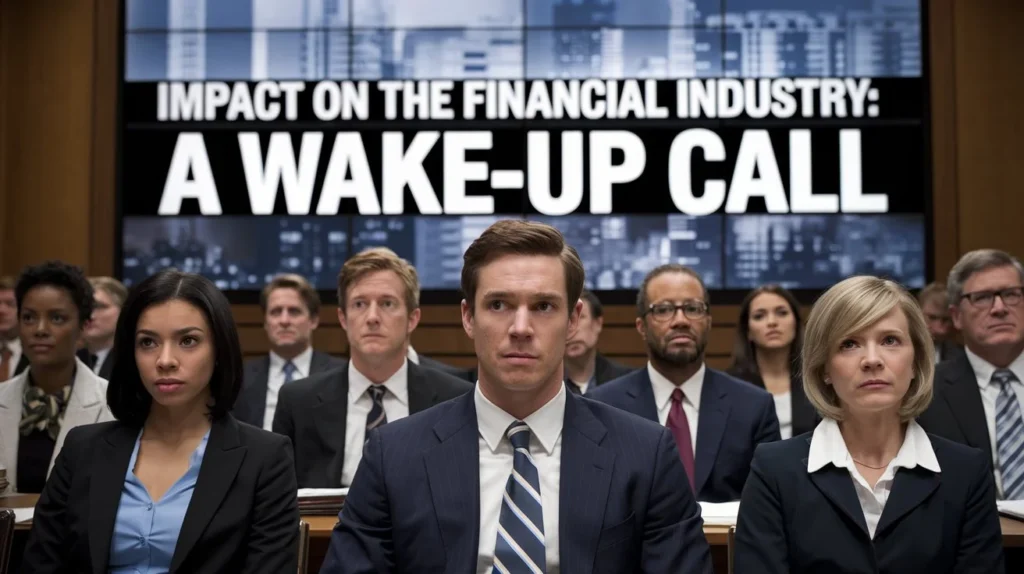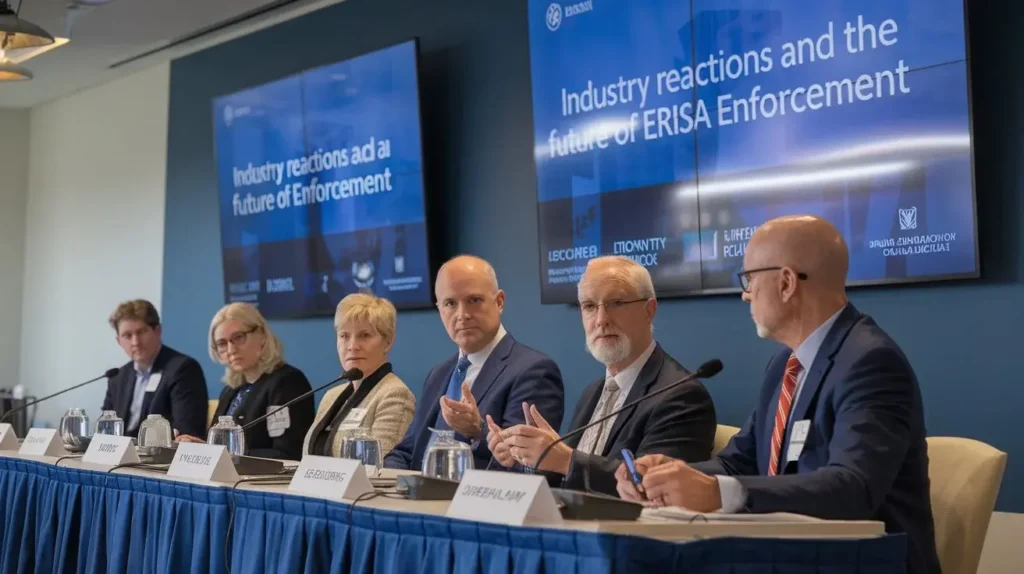
Introduction
White Oak Global Advisors LLC, a prominent investment firm, owes over $96 million to a pension fund for New York nurses, following an arbitration award that alleged the company mismanaged assets, including during undisclosed executive negotiations. The case serves as a crucial reminder of the importance of fiduciary duty in investment management.
The world of finance runs on trust, and the consequences of breaking that trust can be severe, as demonstrated by this lawsuit. Let’s explore the lawsuit, the court’s decision, and what this case signifies for investors and the financial services industry.
The Lawsuit: A Breach of Trust
In 2018, the New York State Nurses Association Pension Plan (NYSNA), responsible for safeguarding retirement security for thousands of nurses, filed a lawsuit against White Oak Global Advisors. The pension plan alleged three key areas of misconduct:
- Mismanagement of Plan Assets: NYSNA contended that White Oak failed to responsibly invest the assets, jeopardizing the financial well-being of beneficiaries.
- Undisclosed Negotiations: The lawsuit uncovered that White Oak was involved in secret discussions surrounding a high-level executive role, raising serious concerns about potential conflicts of interest.
- Breach of Fiduciary Duty: The claim that White Oak violated its fiduciary duty as outlined by the Employee Retirement Income Security Act (ERISA) was central to the lawsuit. Under ERISA, investment advisors are legally obligated to act in the best interests of their beneficiaries, ensuring responsible and ethical investment practices.
This lawsuit shocked the financial sector, bringing attention to the critical need for transparent and ethical conduct in managing retirement funds.
Arbitration and the Court’s Decision
The case went to arbitration, an alternative dispute resolution method. The arbitrator found in favor of NYSNA, ruling that White Oak had violated ERISA by mismanaging assets and failing to disclose crucial negotiations that could have influenced investment decisions. As a consequence:
You may want to Read: 5 Benefits of Using a Term Insurance Calculator
- White Oak was ordered to return $96 million to the pension plan, representing the mismanaged assets.
- The firm had to relinquish all investment management fees earned during the period of alleged misconduct.
- White Oak was also responsible for covering the legal costs incurred by NYSNA during the proceedings.
To add legal legitimacy to the arbitrator’s decision, NYSNA sought confirmation of the award in federal court.
Judge Kaplan’s Ruling: Upholding the Award
In 2022, Judge Lewis A. Kaplan of the U.S. District Court for the Southern District of New York largely upheld the arbitration award. This ruling confirmed the severity of White Oak’s actions and marked a significant victory for NYSNA, reinforcing the legal obligations tied to fiduciary duty in investment management.
Importance of Fiduciary Duty in Investment Management
The White Oak case underscores the vital role of fiduciary duty in investment management, particularly for pension funds. Under ERISA, investment advisors are bound by several critical responsibilities:
- Prudent Investment Practices: Advisors must carefully analyze investment opportunities and mitigate risks to safeguard plan assets.
- Loyalty and Good Faith: Investment advisors are expected to prioritize the best interests of beneficiaries without any conflict of interest.
- Full Disclosure: Transparency is non-negotiable. Advisors must provide all relevant information, including fees, investment strategies, and potential conflicts of interest.
Neglecting these duties can lead to legal consequences, as seen in this case. The ruling has heightened the industry’s awareness of the ethical standards and scrutiny expected in managing retirement funds.
Impact on the Financial Industry: A Wake-Up Call

The NYSNA lawsuit has set a precedent for stricter oversight and more stringent adherence to ethical practices in the financial industry. The successful lawsuit has encouraged regulatory bodies to re-evaluate their existing measures and advocate for stronger investor protection. As a result, investment firms are now more vigilant about their fiduciary responsibilities.
You may want to Read: Which of the Following Statements is True About Education and Lifetime Earnings?
The lawsuit against White Oak may act as a catalyst for change, driving the industry toward better transparency and enforcing fiduciary duties more rigorously.
Safeguarding Pension Funds and Beneficiary Interests
The White Oak case highlights several lessons for pension plan administrators to protect the interests of beneficiaries:
- Due Diligence: A thorough examination of an investment firm’s track record, investment philosophy, and commitment to fiduciary responsibility is essential before entering into any agreements.
- Active Oversight: Ongoing monitoring of investment performance and adherence to ethical guidelines is crucial to ensure responsible management.
- Regular Communication: Open channels between plan administrators and beneficiaries are vital for transparency and trust.
These takeaways can help strengthen the security of pension funds and enhance protection against potential misconduct.
Steps for Holding Investment Firms Accountable
For investors who suspect that their advisor may be failing to uphold fiduciary duties, several actions can be taken:
- Review Investment Performance: Monitor returns against expected benchmarks and strategies.
- Scrutinize Fees: Understand all fees and question any unexplained charges.
- Seek Clarification: Engage directly with advisors for explanations on decisions and fee structures.
If concerns persist, investors can turn to federal entities like the Pension Benefit Guaranty Corporation (PBGC), the Securities and Exchange Commission (SEC), or legal counsel for further action.
Regulatory Role: Strengthening Oversight
Regulatory bodies play an indispensable role in ensuring ethical investment practices. Post-White Oak, these entities can contribute to a more secure investment landscape through:
- Proactive Investigations: Actively pursuing potential ERISA violations, even before complaints arise.
- Imposing Significant Penalties: Ensuring that violations come with meaningful sanctions, including increased fines, license suspensions, or criminal charges for severe breaches.
- Enhanced Collaboration: Sharing information between regulatory bodies to identify patterns of misconduct and uphold investor protection.
White Oak’s Response and Reputation
While White Oak Global Advisors contested the allegations and argued for the soundness of their strategies, the decision to settle reflects an acknowledgment of the gravity of the situation. The firm likely focused on containing reputational damage and avoiding prolonged litigation costs. However, the financial settlement and public scrutiny have already significantly impacted White Oak’s standing within the industry.
You may want to Read: https //www.microsoft.com /ink 10 Game-Changers: Your Digital Potential
Industry Reactions and the Future of ERISA Enforcement

The case has triggered discussions among investment law experts, regulators, and ethical advisors. While legal specialists view it as a landmark case for holding investment advisors accountable, regulators see it as an opportunity to push for enhanced investor protections. Ethical investment advisors recognize the ruling as a reinforcement of the importance of fiduciary duty.
Looking forward, the White Oak settlement has sparked a push for reforms to ERISA enforcement, including potential:
- Stronger Fiduciary Duty Standards: Clearer definitions and stricter enforcement of fiduciary obligations.
- Increased Regulatory Resources: More tools and funding for agencies like the SEC to monitor investment practices.
- Enhanced Whistleblower Protections: Stronger safeguards for individuals who report potential misconduct.
Protecting Your Retirement Security
In light of the White Oak case, investors should take active steps to safeguard their retirement security:
- Understand Investment Strategies: Be fully informed about your advisor’s strategies and associated risks.
- Regularly Review Performance: Stay vigilant and question any deviations from expected performance.
- Scrutinize Fees: Know what you are paying for and why, and be cautious of any unexplained charges.
- Maintain Open Communication: Consistently engage with your advisor about investment decisions and strategies.
By being informed and proactive, investors can play a key role in protecting their financial future.
You may want to Read: Unlock Returns: Top Crypto 30x Poised to Boom
Conclusion
The White Oak Global Advisors lawsuit serves as a powerful reminder of the essential role fiduciary duty plays in investment management. The financial settlement, exceeding $96 million, is a landmark moment that highlights the need for ethical practices, regulatory oversight, and investor vigilance. This case not only holds one investment firm accountable but also signals a broader call for transparency, trust, and adherence to fiduciary responsibilities in the financial industry.
Ultimately, the White Oak case is more than just a legal battle; it’s a cautionary tale and a call to action for investment managers, regulators, and investors alike to foster a more secure, transparent, and responsible investment landscape.
You may want to Read: Andre Hakkak $10B Net Worth: Top Investment Secrets
FAQs
Who is the CEO of White Oak Global Advisors?
The CEO of White Oak Global Advisors is Andrew D. G. Spector, a dynamic leader steering the firm towards innovative investment strategies.
Where is White Oak Global Advisors headquartered?
White Oak Global Advisors is headquartered in San Francisco, California, a vibrant hub for finance and innovation.
Who is the owner of White Oak?
White Oak Global Advisors is owned by its founding partners, including Andrew Spector, who drive its vision and growth.
Is White Oak Loans legit?
Yes, White Oak Loans is considered legitimate, backed by a reputable investment firm with a strong track record in finance.

Stay updated with the latest news and trending topics on my blogging website. From breaking stories to in-depth analyses, I bring you the most relevant updates concisely and engagingly!




